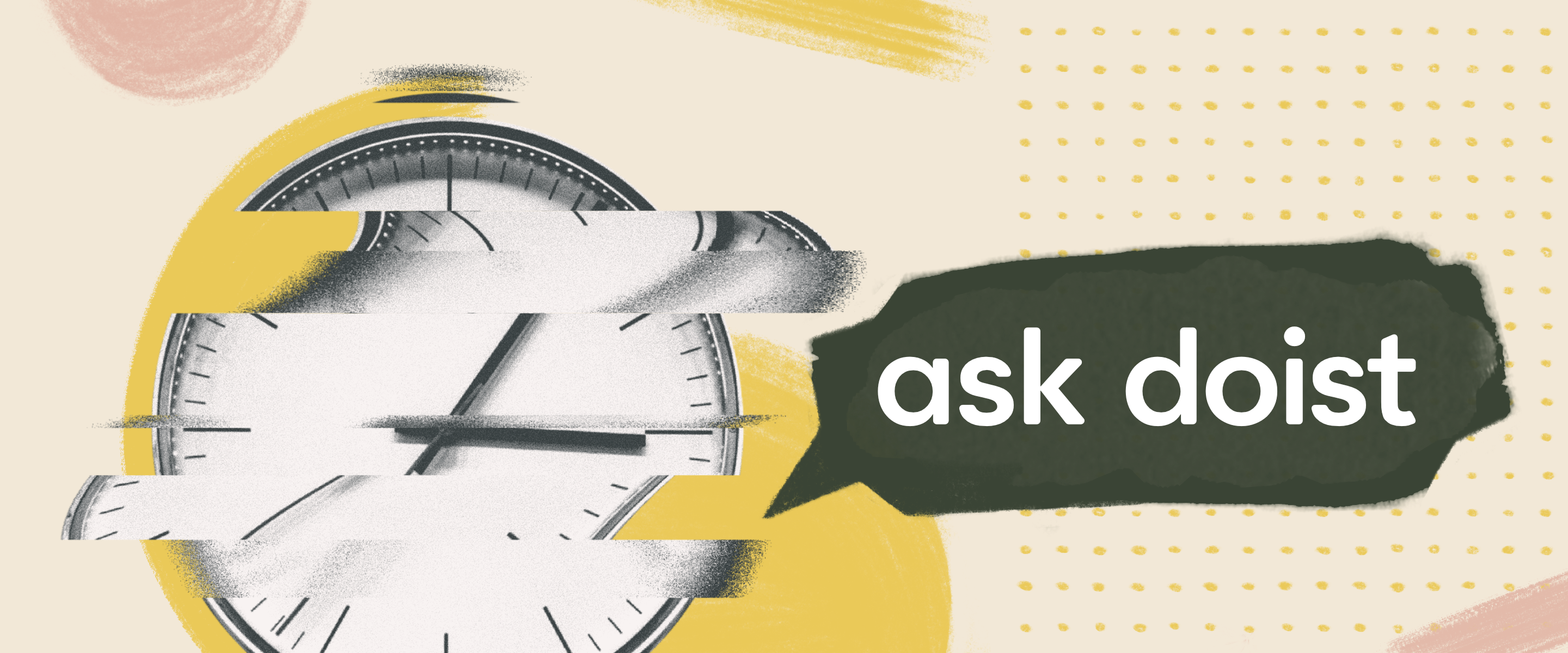I am a physician, and I do shift work, mainly in the evenings and overnights. I do not have a regular schedule, the shifts are randomly dispersed throughout the month, including weekends and holidays. As a result, the child care I have is also somewhat flexible and changes week to week. Apart from my shifts, I also have work to do outside of my shifts and I am always looking to improve my productivity and my work-life balance. One thing I struggle with is that a lot of advice about productivity talks about having a routine. What tips do you have for those of us without a regular 9-5 job?
I really appreciate this question. So much productivity advice is geared toward 9-to-5 office workers or people like freelancers or remote workers who have more flexibility in their work hours (we’re certainly guilty of this on Ambition & Balance). What about people who have both inflexible and irregular work hours? A lot of the same productivity principles can apply, but you may have to think about them in a slightly different way.
For people who have both inflexible and irregular work hours, a lot of the same productivity principles can apply, but you may have to think about them in a slightly different way.
A routine is a chain reaction of habits set off by an initial cue. While we most often think of that cue as time-related – e.g., when your alarm goes off in the morning, after breakfast, when you get to work, an hour before bed, etc. – those aren’t the only cues that can set off and/or reinforce a routine. The environment you’re in, what you’re eating or drinking, or the music you’re listening to can all be a part of the cues that trigger a routine.
While you can’t hold the time of day you sit down to work constant, you can control other elements of your work routine:
- Can you do your non-shift work at the same place every day? A home office? A favorite coffee shop? A library? A reading nook? Ideally it will be somewhere separate from the rest of your life so that the connection between being in the place and getting into work mode is stronger.
- Can you make yourself a cup of coffee or tea (caffeinated or decaf depending on the time of day) before you sit down to work? The act of making the coffee can act as a cue to get focused.
- Can you listen to the same playlist or type of music to get into work mode?
- Can you identify one easy first thing you can do each time you sit down to work? Is there something that will only take 5-10 minutes so you won’t be tempted to put it off? Can you pull up your Today list in Todoist and identify your top priority task? Or pull out your favorite pen and notebook to write out a to-do list by hand? That one task can be its own cue to trigger your work routine.
Studies have found that writing out a specific plan for when and where you’ll do something makes you more likely to actually follow through.
The other thing I think would make a big difference is planning out your week in advance. Studies have found that writing out a specific plan for when and where you’ll do something – from exercising to voting to showing up for your colonoscopy – makes you more likely to actually follow through. Your schedule might totally change week to week, but if you get your schedule at least a week in advance, you can sit down to plan out what you’ll do when.
I love the time blocking method for this type of planning. Yes, it takes more time to plan out your work – time that you could be using to actually do the work – but you’ll get back that time and then some with more consistent productivity throughout the week.

